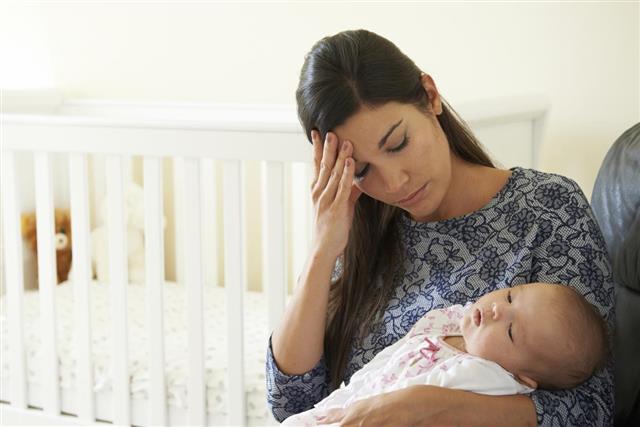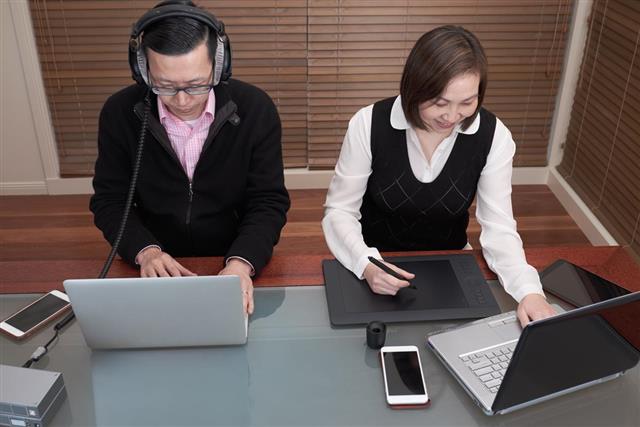
Traditionally, most women were bound to the role of being full-time mothers. However, in the last few decades, the number of women embracing full-time careers has increased dramatically. This has had its own share of problems. Is it possible for a woman to effectively handle both responsibilities simultaneously, and is being a working mother a smart lifestyle choice? Let us find out.
Did You Know?
According to the Bureau of Labor Statistics, American working moms pickup around 1½ hours more of household and childcare duties than working dads, while the dads enjoy around one hour more of leisure activities on a daily basis.
Although the concept of a working mother was alien and taboo in the past, the current economic conditions around the world have made it difficult for families to live comfortably under just one wage. Also, women have reached great heights in education and are much more qualified than they were a few years ago. It is now necessary for most mothers to take up further responsibilities and add to the income of the family.
Despite the contributions that women have added to the workforce, most working dads have not increased their share of the workload at home. This means that the mothers are largely responsible for housework and childcare even today. Obviously, following such a lifestyle will have its effects on the mental and physical well-being of the person.
Challenges of Being a Working Mother
Extra Costs: Due to the fact that both parents are working, childcare facilities have to be arranged for the kids. These facilities consume a large part of the family income, which includes the mother’s earnings as well. This is one of the most common problems faced by working mothers. In countries such as Australia, families who are dependent on a parenting allowance, can find themselves in a worse position because of a second wage. This is because the allowance amount reduces with higher income brought in by the couple.
Stress: Researchers across the world have found that the stress levels of working mothers is much higher as compared to those women who dedicate all their time to either parenting or working. Managing both roles and constantly multitasking can be very hard and taxing on their body and mind. This often leads to the women venting out their frustration and anger on their families, which leads to guilt and even more stress. This problem is even more pronounced in single working mothers. Studies have also shown that a majority of them would like to become full-time mothers or work from home, if their financial situation permitted them to do so.
Health Issues: The excess workload faced by working women puts a lot of strain on various parts of the body, leading to various health issues such as asthma, arthritis, cardiac issues, sleep deprivation, and body pain in the long run. While the extra money brought in by a working woman can provide a healthier lifestyle for her family, the lack of care and supervision can also lead to negative effects on their health.
Division of Housework: Statistics show that men have started to take a lot more responsibility in doing household chores these days, as compared to the men of the 1970s. However, women still have to bear the major load of household duties. Working mothers also have to work similar hours to full-time moms, and work more than working fathers, and those working part-time have the longest working hours of all. All this leads to a serious imbalance between their professional and personal lives, leading to drastic outcomes such as fewer children and higher divorce rates.
Workplace Problems: On an average, working mothers earn lesser than women without children despite their qualification and commitment to their jobs. These women are also often ostracized or discriminated against, as they may be stereotyped as being less devoted to the work as compared to women who don’t have children. This leads to low job satisfaction, psychological issues, and greater chances of quitting the job.
Taking Care of Sick Children: One of the major difficulties of being a working mother is that taking care of an ailing child often falls on the woman. This is because the father usually earns more and his job is thought to be more important. However, because employers provide paid sick leaves only for unwell employees, women have to use their annual leaves or take unpaid leaves to tend to the child. For this reason, women need more flexible hours, parental leaves, and understanding employers.
Lack of Intimacy with Spouses: Another major complaint by working mothers is the reduction of intimacy with their spouses. Fatigue, stress, and anger towards their spouse for not doing his share of household chores, are seen as the major causes for this problem.
Lack of Time for Personal Interests: Taking time out for ordinary activities, such as going to the gym or having a night out with friends, is difficult for working mothers due to a lack of available free time. Even if they do find time, they are sometimes too tired, and the only aim in life seems to extract more time to sleep each day. This kind of behavior on a constant basis, leads to depression and irritability.
Can a Working Woman Be a Successful Mother?
Looking at how hard it is to be a working mother, choosing this lifestyle does not seem like a good idea. However, occasionally, one does come across a woman who is able to maintain a busy career, and a great family simultaneously, without letting it affect her adversely in any way.
The key here is to effectively manage time between a job, the family, and one’s personal pursuits. Another important thing to remember is that feeling guilty for not being able to give time to your family never helps. Most working mothers are already contributing a lot, not just the kids but also their husband, parents, boss, coworkers, and the local community. One must accept that trade-offs are inevitable, seek help when required, and flow with the new lifestyle. The other members of the family must take more responsibility in household work. This will help relieve a lot of stress and pressure and make it easier for women to effectively manage their dual responsibilities with ease.
As you might notice, the problem is not in whether women should work and be mothers at the same time. Such a decision should be taken with complete freedom. However, it is important that this lifestyle does not pull the woman and her family into an endless cycle of exhaustion. No matter how the responsibilities for managing the family have been divided, some time and energy has to be set aside for oneself and for each other.












